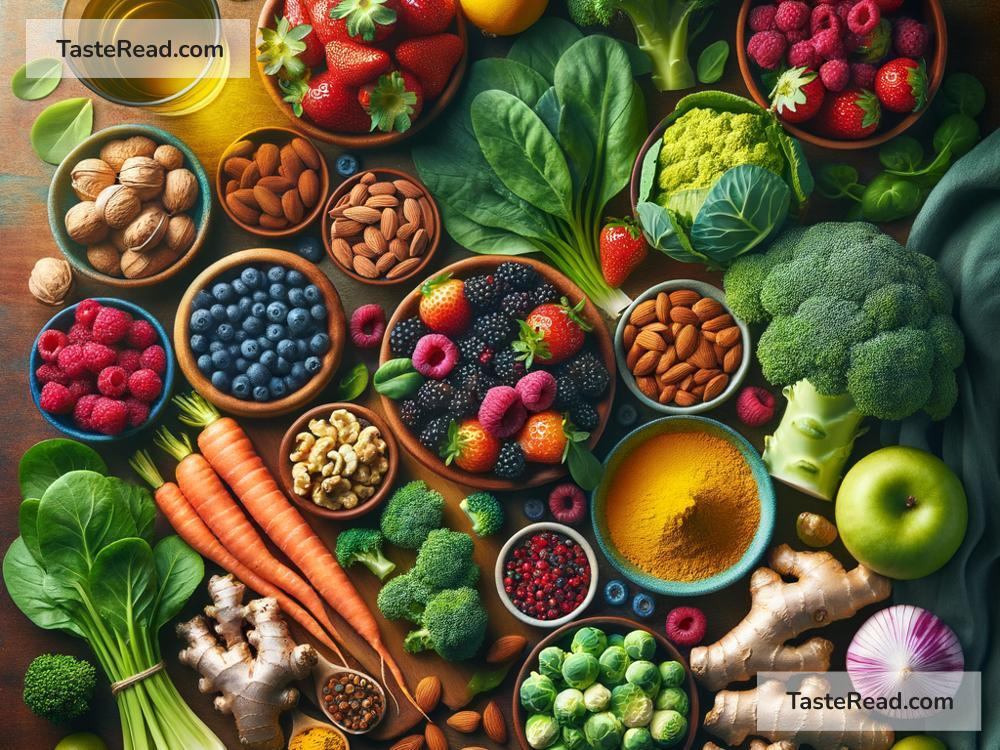Foods That Help Reduce Genetic Damage
Gene health is the foundation of strong body systems, and what we eat plays a big role in preserving it. A poor diet can lead to unstable genes, increasing your risk for chronic diseases and aging fast, while the right foods can protect and even repair your DNA. Thankfully, many delicious and readily available foods can help reduce genetic damage, keeping you healthier for longer. In this article, we break down the foods you should focus on—and why they work!
What Is Genetic Damage and Why Does It Matter?
Genetic damage refers to harm done to your DNA, the core blueprint that guides how your body grows, repairs, and functions. Exposure to things like pollution, UV rays, smoking, harmful chemicals, and certain unhealthy foods can cause your DNA to become damaged. This damage can lead to errors in how cells divide and reproduce, increasing your risk of cancer, aging-related illnesses, and other health problems.
The good news is that your body has incredible repair mechanisms, and what you eat can support this process. By feeding yourself nutrient-rich, DNA-protecting foods, you provide tools for your body to both shield your genes from harm and fix errors when damage occurs.
Top Foods for Reducing Genetic Damage
Here are some key foods that have been studied for their ability to protect DNA and reduce genetic harm:
1. Leafy Greens
Leafy vegetables like spinach, kale, and Swiss chard are packed with folate, a type of B-vitamin that helps your cells create and repair DNA. Folate plays a crucial role in preventing mutations, which are harmful changes in genetic code.
Adding a handful of raw spinach to a smoothie or sautéing kale as a side dish is an easy way to boost your DNA’s defense system.
2. Berries
Berries such as blueberries, strawberries, raspberries, and blackberries are loaded with antioxidants like vitamin C and polyphenols. These antioxidants neutralize free radicals—unstable molecules that can harm DNA and cause genetic damage.
Snack on fresh berries, add them to yogurt or oatmeal, or enjoy them in smoothies. Frozen berries can be just as nutritious as fresh ones, making them a convenient option.
3. Nuts and Seeds
Nuts like almonds, walnuts, and seeds such as flaxseeds and chia seeds contain vitamin E and omega-3 fatty acids, both of which help protect cell membranes and DNA. Omega-3 fats also reduce inflammation, which can worsen genetic damage over time.
Add nuts and seeds to salads, oatmeal, or trail mix for easy ways to incorporate them into your diet.
4. Cruciferous Vegetables
Broccoli, cauliflower, Brussels sprouts, and cabbage belong to the cruciferous vegetable family. These vegetables contain compounds called sulforaphanes and glucosinolates, which stimulate your body’s natural detoxing processes and promote DNA repair.
Steam or roast these veggies for maximum nutrition—and don’t forget to season them with spices for added flavor!
5. Tomatoes
Rich in lycopene, tomatoes are known as a DNA-protecting superfood. Lycopene is a powerful antioxidant that shields your cells from oxidative stress, preventing damage to genetic material.
Enjoy fresh tomatoes in salads, incorporate them into sauces, or roast them to unlock even more of their nutrients.
6. Green Tea
Green tea contains catechins, antioxidants that have been shown to reduce DNA damage and improve the body’s repair mechanisms. Drinking green tea regularly may even lower the risk of certain types of cancer.
Swap your afternoon coffee for green tea or sip a warm cup during breakfast for a double health boost.
7. Fatty Fish
Salmon, mackerel, sardines, and other fatty fish contain high levels of omega-3 fatty acids, which protect DNA from inflammation and oxidative damage. Omega-3s also support the health of your cell membranes, creating a better environment for DNA repair.
Try grilling or baking fish as your protein source for dinner a couple of times a week.
8. Whole Grains
Whole grains like brown rice, quinoa, oats, and whole-grain bread are rich in fiber, which helps flush out toxins that could otherwise cause genetic damage. Additionally, whole grains contain B-vitamins and minerals that support DNA repair processes.
Substitute white rice and refined breads with their whole-grain counterparts for more of these protective benefits.
Bonus Tips for DNA Protection
Besides eating the right foods, here are extra steps you can take to protect your DNA:
- Stay hydrated: Water helps flush out waste products that could harm your DNA.
- Avoid processed foods: Sugary snacks, fried meals, and artificial additives increase inflammation and oxidative stress.
- Exercise regularly: Physical activity enhances cellular function and boosts the body’s repair systems.
- Reduce exposure to toxins: Quit smoking, limit alcohol intake, and avoid unnecessary contact with harmful chemicals.
Wrapping Up
Genetic health is vital for your overall well-being, and the foods you eat can play a major role in protecting and repairing DNA. Leafy greens, berries, nuts, cruciferous vegetables, fatty fish, and green tea are just a few of the nutritional powerhouses that can guard your body’s genetic blueprint against damage.
By incorporating these foods into your daily diet and pairing them with other healthy habits, you’re giving yourself the best shot at a long, vibrant life. So, next time you prepare a meal or shop for groceries, remember: you’re not just feeding your body; you’re safeguarding your genes too!


